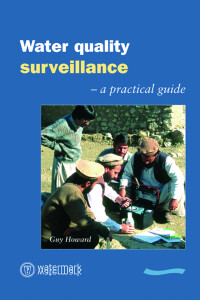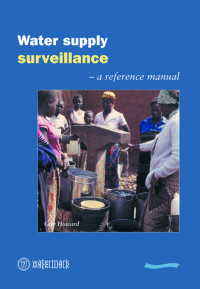-
The prevention and control of cholera
01.04.1994
The threat of cholera is not new, and it shows no sign of abating. Are there practical, low-cost ways in which fieldworkers can make some useful attempts to fight this scourge? -
Pollution control and water-resource protection in developing countries
01.07.1995
Pollution control and the monitoring of natural water and effluent quality are vital for the protection of water resources on any continent. In most of the developing world the demands on these resources are increasing; what practical steps can the South take now to preserve them for future generations? -
Where there is no training - pollution-risk assessment by field staff
01.07.1995
People are waking up to the fact that pollution, and the risk of pollution, must be assessed and monitored. Hard-pressed, untrained fieldworkers can contribute - with a little help. -
Healthier values: realistic approaches to improving drinking-water quality
01.07.1997
Guidelines have been established, and there are models for surveillance programmes in the South. But there is a long way to go before everyone is convinced that only regular monitoring and control will ensure that the quality of water is maintained. -
Water-quality monitoring and NGOs
01.07.1997
For NGOs, providing water in sufficient quantities has always been the priority. But if the quality is poor, they may be merely improving access to disease. Are they equipped to take on a monitoring role? And how do they involve the community? -
On-site sanitation groundwater: The art of balancing unknown risks?
01.04.1999
Does the siting of pit latrines close to water sources pose a significant risk to health? Or does the real danger lie with the absence of, or inadequate, sanitation facilities? -
The new WHO Guidelines: establishing comprehensive water-safety frameworks
01.04.2005
The third edition of the WHO's Guidelines for Drinking-Water Quality has just been launched. It emphasizes monitoring water supply systems from catchment to consumer to ensure that at critical points water safety is maintained, in order to meet health-based targets. -
Developing a water-safety framework in Bangladesh
01.04.2005
The first step in developing a water-safety framework in Bangladesh has been to develop models to predict the risk of disease associated with particular pathogens. Water-safety plans could then be developed to counter these risks for the range of technologies used in rural areas.


